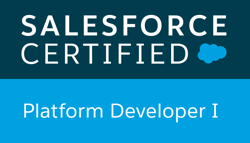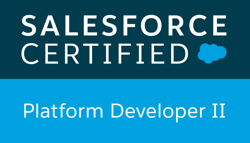HomeTodd Gill Info
Todd Gill Info
TODD E. GILL
TECHNICAL ARCHITECT / DEVELOPER / CONSULTANT
Experienced technical architect, developer, team lead and consultant specializing in web applications and Salesforce.com development / integrations. Experienced with many languages and platforms. Able to communicate clearly with business stakeholders and technical resources to deliver high-value solutions as efficiently as possible given the context of the situation. Comfortable in client-facing roles and capable of leading a team or just implementing a solution on my own.
MY APPROACH
CLEAR COMMUNICATION IS REQUIRED FOR SUCCESS
CONTEXT IS KING
After taking part in many different projects, I can usually determine how a development phase will end up based on the decision-making approaches taken by the development team and stakeholders. Decisions made for a software development project cannot be made in a vacuum! They must always be made based on the context of the situation. There are usually many feasible ways to build software solutions that meet stakeholder goals.
AVOID TECHNOLOGY DOGMA
Development teams should build solutions using the resources, platforms and tools that are available or required by the business, and not just the ones members of the development team prefer to use.
CLEAR EXPECTATIONS LEAD TO SUCCESS (AKA ‘USE THE RIGHT AMOUNT OF WORDS AND PRETTY PICTURES TO BE CLEAR WITH YOUR AUDIENCE’)
TECHNOLOGIES CHANGE, BUT SOFTWARE DEVELOPMENT FUNDAMENTALS ENDURE.
MORE ABOUT MY EXPERIENCE
I have led and participated in many development teams, both on-site and remote. In addition to programming, I am experienced with multi-environment design, setup and configuration and with the associated complexities this brings to promotion and release.
I always promote the usage of collaboration tools so I and my teams can do just that, whether working remotely or in the same building. My clients have said they appreciate how I communicate complex issues and ideas between development team members and clients/stakeholders in a way that each group can understand.
PET PEEVES
- When developers create a solution that does not take the rest of the system into consideration
- When developers write code in order to say they did something at a scrum meeting
- When project managers only ask “What did you do yesterday? What will you do tomorrow? Why isn’t it done yet?” without understanding the issues enough to facilitate a solution.
- Uncontrolled deployments
- When business does not budget for technical debt
- When there are no proper written use cases to define what it is we’re building before we build it (I prefer Allistair Cockburn style use-cases)
- When any resource has a profound inability to admit fault or accept responsibility. These are the people who always seem to be blaming and belittling others. They also tend to run businesses into the ground.
- Over-documentation
- Under-documentation
- Over-simplifying a non-trivial task in order to justify short timeline or low budget
- Micromanagement
- Incompetence as expressed through arrogance and… incompetence!
- Business leaders who think it is their job to “always be right” instead of focusing on facilitating and guiding the creation of value
HAPPY TO HAVE
- Collaborative environment where competent professionals listen and share
- Decision makers who understand and accept the limits of their own understanding
- Useful documentation that accurately describes what it is the team is building together
- People who can factor a problem down to its simplest requirements, but not simpler than it needs to be.
- Competent resources WHO CAN COMMUNICATE WITH OTHERS CLEARLY VIA WRITING AND SPEAKING
- Appropriate delegation to competent resources, as opposed to dumping tasks and avoiding responsibility
- Business stakeholders who understand their job is “to manage risk while exposing the company to huge upside possibilities”.
SPECIALTIES AND ACRONYMS
- System Architecture and Design
- Proof of concept development for new applications, technologies, platforms, vendor services, etc.
- Creating and supporting development and deployment/release management practices to support multiple environments (i.e. dev, test, stage, prod, etc.)
- Creating custom integrations using ETL tools, custom tools, or some combination of the two
- Expressing technical designs for technical resources using diagrams, use cases, assignable issue tracker work items, written text, proof-of-concept examples, web conferences or whatever else it takes to improve accuracy and efficiency
- Legacy Applications – maintenance, updates, refactoring, upgrades and phased retirement
- Salesforce.com Development: Force.com, Apex, triggers, unit/integration test code development, SOQL, etc. I currently hold the Salesforce Certified Platform Developer II and Salesforce Certified Platform Developer I credentials
- Microsoft technologies: .NET, SQL Server, etc.
- Python / Django
- Shell scripting / automation
- High Availability / High Traffic Production Web Sites
- Dev Team Management
- Deployment/Release Management
- Requirements Documentation
- Backlog development and grooming
- Securing applications
- Full stack development (multiple platforms / languages, polyglot)
- Extensive experience with Microsoft technologies
Ability and willingness to:
- Ask questions
- Say “I don’t know”
- Read the manual
- Learn about new technologies that might help us reach our goals
- Learn why a legacy system or legacy code was put in place before ripping it out and replacing it


